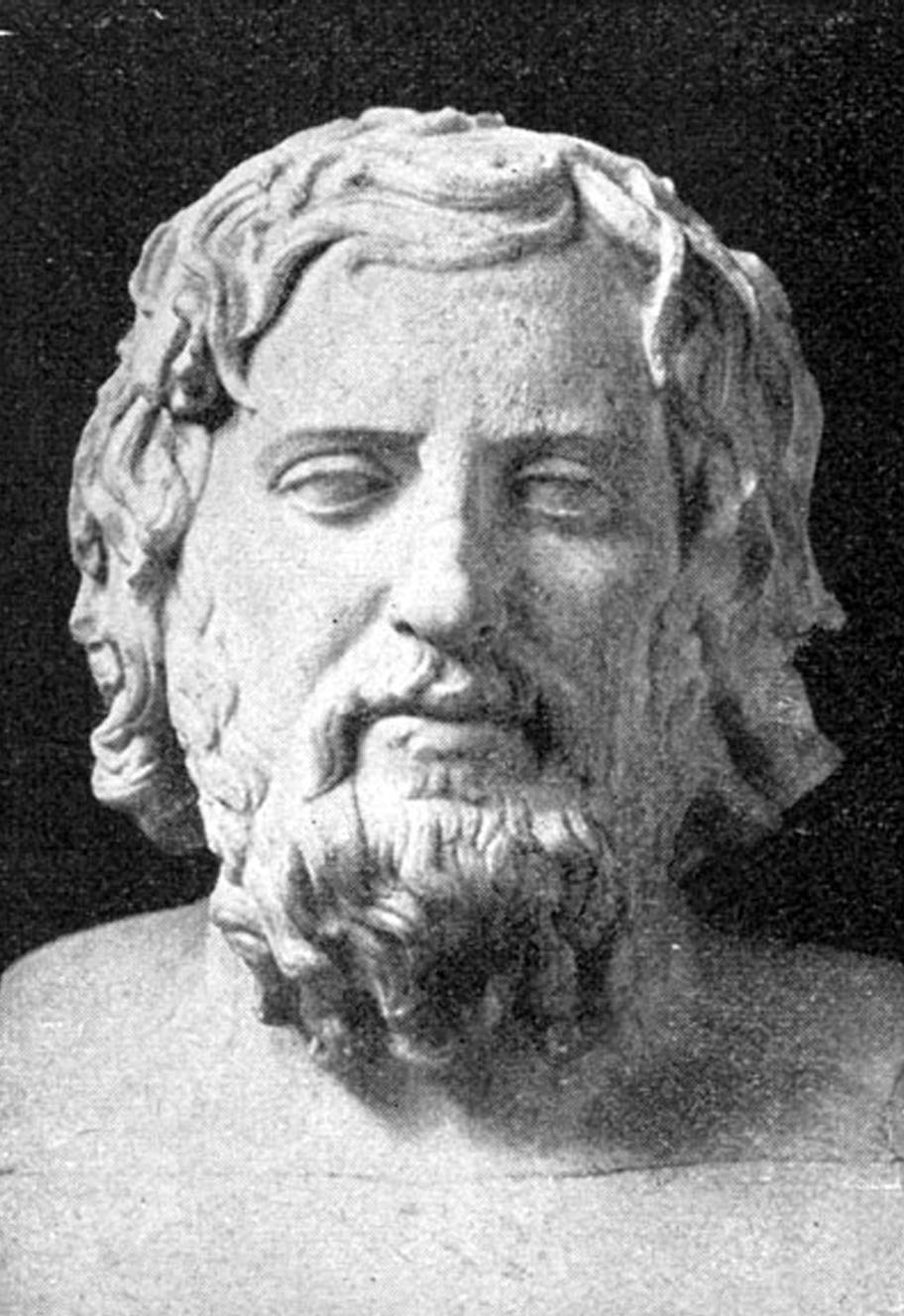Xenophon
Born:
C. 431 BCE
Died:
C. 354 BCE
Xenophon was an ancient Greek historian, philosopher, soldier, and mercenary. He was a contemporary of Plato and a student of Socrates. Xenophon's diverse works cover a wide range of subjects, including history, philosophy, politics, and military tactics. Here are key aspects of Xenophon's life and contributions:
Background and Early Life: Xenophon was born in Athens around 431 BCE, the son of Gryllus, a wealthy Athenian, and Philesia, an aristocratic woman. He belonged to the upper echelons of Athenian society and received a traditional aristocratic education.
Participation in Historical Events: Xenophon actively participated in several historical events, including the Peloponnesian War (431–404 BCE) between Athens and Sparta. He joined the army of Cyrus the Younger, a Persian prince, in a military campaign known as the "March of the Ten Thousand." After Cyrus's death, Xenophon played a key role in leading the Greek mercenaries back to safety, documenting the events in his work "Anabasis" (The March of the Ten Thousand).
Philosophical Education under Socrates: Xenophon was a student of Socrates, and his works reflect the influence of Socratic philosophy. However, his philosophical style differs from that of Plato, another prominent disciple of Socrates.
"Anabasis" (The March of the Ten Thousand): "Anabasis" is one of Xenophon's most famous works. It recounts the experiences of the Greek mercenaries who found themselves stranded deep in Persian territory after the death of Cyrus the Younger during the Battle of Cunaxa. Xenophon's leadership during the retreat and his ability to navigate challenging circumstances are central to the narrative.
Historical and Biographical Works: Xenophon wrote several historical and biographical works, including "Hellenica," which continues the history of Greece from where Thucydides left off, covering the years 411–362 BCE. "Cyropaedia" is a partly fictional biography of Cyrus the Great, blending history with elements of moral and political philosophy. The work presents an idealised ruler and explores the qualities necessary for effective leadership.
"Memorabilia" and Socratic Dialogues: "Memorabilia" is a collection of Socratic dialogues written by Xenophon. The work presents Socrates in a positive light, defending him against the charges that led to his trial and execution. Xenophon's Socratic dialogues differ from Plato's in style and emphasis, portraying Socrates as a practical moral teacher rather than a speculative philosopher.
Political and Military Career: Xenophon served as a military commander in various capacities. He fought in the Battle of Coronea (394 BCE), where the Spartans defeated the Athenians. Later in life, Xenophon settled in the city of Scillus in the Peloponnese, where he engaged in farming and continued writing.
Death: The details of Xenophon's death are not well-documented. He likely died around 354 BCE, and his legacy endured through his writings.
Legacy: Xenophon's writings cover a broad range of subjects, providing valuable insights into historical events, military tactics, and philosophical ideas. His practical approach to philosophy and his emphasis on ethics, leadership, and governance have influenced subsequent thinkers and leaders throughout history. Xenophon's works, particularly "Anabasis" and "Cyropaedia," remain essential reading for those interested in ancient history, philosophy, and military strategy.
Xenophon's multifaceted contributions, from his historical accounts to his philosophical and biographical writings, have left a lasting impact on the study of ancient Greek history and thought.

Quick Facts
- Xenophon actively participated in the Peloponnesian War and the "March of the Ten Thousand."
- He was a student of Socrates and wrote philosophical works, including "Memorabilia."
- "Anabasis" is one of his most famous works, documenting the Greek mercenaries' journey and his leadership during the retreat.
- Xenophon's writings provide insights into historical events, military tactics, and moral philosophy.
- His legacy endures through the practical approach to philosophy and ethical considerations in his works.
Further Reading
Art &
Architecture
Ancient Greek art and architecture, with its harmonious proportions and timeless elegance, continue to inspire awe and admiration millennia later.
Discover
Greek Mythology & Mythical Characters
Greek mythology, a rich tapestry of gods, heroes, and mythical creatures, captivates the imagination with its tales of love, betrayal, and epic adventures that delve into the depths of the human psyche.
Discover
Ancient Greek History
Ancient Greek history, marked by remarkable achievements in democracy, philosophy, and warfare, shaped the foundation of Western civilization, leaving an indelible legacy of innovation and cultural influence that continues to resonate to this day.
Discover
Ancient Greek Olympics
The ancient Greek Olympics, held in Olympia every four years, celebrated athleticism, unity, and cultural pride, serving as a testament to the enduring spirit of competition and excellence that transcends time and borders.
Discover
Ancient Greek Wars
Ancient Greek wars, such as the Persian Wars and the Peloponnesian War, were pivotal conflicts that shaped the course of history, highlighting the struggle for power, independence, and the clash of civilizations in the ancient Mediterranean world.
Discover
Ancient Greek Culture and Society
Ancient Greek culture and society, characterized by its emphasis on art, philosophy, and civic engagement, fostered a vibrant intellectual and social landscape where innovation flourished, democracy thrived, and the pursuit of knowledge and excellence was celebrated as fundamental values of civilized life.
Discover